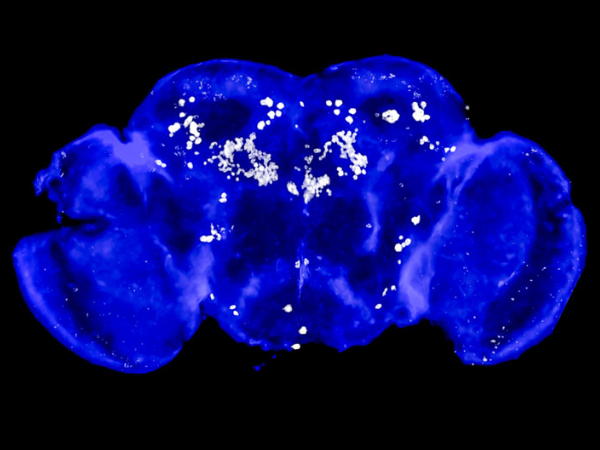 UAB Department of Surgery Professor and Vice Chair of Basic Research Aurelio Galli, Ph.D., D.Sc., and UAB Division of Surgical Oncology Assistant Professor Angela Carter, Ph.D., along with their research team, were featured on the cover of Science Signaling and in ScienceAdvisor for their recent article, "Fusobacterium nucleatum enhances amphetamine-induced behavioral responses through a butyrate-driven epigenetic mechanism.”
UAB Department of Surgery Professor and Vice Chair of Basic Research Aurelio Galli, Ph.D., D.Sc., and UAB Division of Surgical Oncology Assistant Professor Angela Carter, Ph.D., along with their research team, were featured on the cover of Science Signaling and in ScienceAdvisor for their recent article, "Fusobacterium nucleatum enhances amphetamine-induced behavioral responses through a butyrate-driven epigenetic mechanism.”
Galli and Carter's research explores how Fusobacterium nucleatum, a bacterial species that is elevated in the gastrointestinal tract of patients with methamphetamine use disorder, can regulate addiction-like behaviors. The study demonstrates that these bacteria produce metabolites that increase the expression of a gene in the brain that controls responses to amphetamines. This work suggests that bacteria and their byproducts are viable targets for the development of treatments for amphetamine use disorders.
Both researchers specialize in basic science, Galli aims to advance the understanding of complex behaviors, focusing on reward systems in the brain, while Carter concentrates her current research on identifying molecular mechanisms that connect microbes with both human health and disease.
“At UAB Department of Surgery, we not only strive to excel in patient care and clinical research, but also to address and improve the treatment of diseases from their very origin. The work of Dr. Galli, Dr. Carter, and their team is impressive and brings visibility to this department across the fields of basic science and cell biology. I am confident that they have many outstanding projects to come, and their feature on the cover of Science Signaling serves as a testament to their achievements,” says Fay Fletcher Kerner Chair of Surgery Herbert Chen, M.D.
About Science Signaling
Science Signaling is a prestigious journal of scientific research – accepting fewer than 10% of submitted articles. The journal specializes in publishing groundbreaking research in cellular signaling and covers a wide range of fields, including cancer, immunology, inflammation, cardiovascular biology, and more.